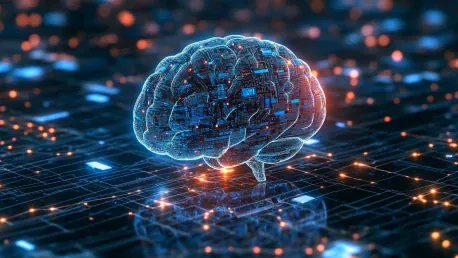In today’s rapidly evolving technological landscape, artificial intelligence (AI) is increasingly being integrated into workplace decision-making processes, raising questions and concerns about its impact on employees. On March 6, 2023, California State Senator Jerry McNerney, D-Pleasanton, introduced groundbreaking legislation called the “No Robo Bosses Act” (SB 7), seeking to regulate the use of AI in employment-related decisions. This bold move aims to mandate human oversight on AI systems used for crucial tasks such as hiring, promotions, disciplinary actions, and terminations. The act also prohibits AI from utilizing personal information to predict future worker behavior, reflecting the growing apprehension about allowing automated systems to make critical employment decisions without human intervention.
Notably, McNerney clarified that the intention behind the bill is not to eliminate AI from workplaces entirely but to implement guidelines ensuring that technology does not unfairly or unlawfully impact workers. Co-authored by Assemblymembers Sade Elhawary, D-South Los Angeles, and Isaac Bryan, D-Los Angeles, this piece of legislation is sponsored by the California Federation of Labor Unions, AFL-CIO. The federation, which represents over 1,300 unions with 2.3 million members, advocates that AI systems should not make definitive job-related decisions, especially those concerning worker safety and emergencies. The “No Robo Bosses Act” aims to pioneer responsible AI usage in employment, potentially becoming the first law of its kind in the United States.
The Proposed Bill: Worker Safety and Fairness
Lorena Gonzalez, president of the California Federation of Labor Unions, emphasized the critical importance of keeping AI in check when it comes to vital job-related decisions, particularly those involving worker safety and emergencies. She highlighted that the bill’s primary objective is to protect workers from the potentially harmful consequences of AI-driven decisions made without human oversight. The concern is that AI systems, despite their efficiency and speed, could inadvertently perpetuate biases or make errors impacting workers’ careers and well-being.
The proposed legislation underscores the need for a human touch in AI-driven employment processes to ensure fairness and accountability. While AI can be a powerful tool for enhancing productivity and streamlining operations, the bill articulates that essential decisions affecting workers’ lives should involve a human’s judgment. This provision ensures that employees have a measure of protection against any potential AI misjudgments that could adversely impact their professional futures. Furthermore, by restricting AI from using personal information to predict future worker behavior, the legislation addresses privacy concerns and aims to prevent any misuse of sensitive data.
However, the proposed bill has sparked a significant debate among stakeholders, with labor unions staunchly supporting it for safeguarding workers’ rights and business groups voicing concerns about its implications. Opponents argue that limiting AI’s capabilities could stifle innovation and hinder growth. They maintain that AI, when appropriately used, can improve employee retention rates, enhance job satisfaction, and streamline human resources processes. Thus, the challenge lies in achieving a balance between leveraging AI for its benefits while ensuring adequate safeguards to protect workers’ interests.
Business Opposition and Future Implications
Business groups, in particular, have expressed apprehension regarding the potential impact of the “No Robo Bosses Act” on operational efficiency and technological progress. Law firm Fisher Phillips, for instance, contends that banning predictive AI could obstruct advancements that lead to better employee retention and satisfaction. The firm asserts that not all AI applications pose significant risks. It argues that many AI-driven processes are based on straightforward algorithms rather than complex generative AI, implying that these simpler systems might not necessitate stringent regulations.
As discussions around the proposed legislation evolve, it is evident that the debate extends beyond California. A similar federal proposal, the “No Robot Bosses” Act, failed to advance beyond committee stages last year, indicating that the focus on regulatory measures may now shift to state legislatures. Fisher Phillips predicts that for the foreseeable future, states will assume the lead in AI regulation, with California potentially setting a precedent for others to follow. This shift could herald a new era of state-level oversight aimed at striking a balance between AI innovation and protecting worker rights.
In light of this situation, businesses may need to adapt their strategies to comply with emerging regulations while continuing to harness the benefits of AI. Companies might consider investing in technologies that incorporate both AI efficiency and human oversight to ensure compliance and maintain a fair, unbiased workplace. The “No Robo Bosses Act” emphasizes the need for responsible AI usage that aligns with ethical standards and respects worker rights.
Moving Forward: Balancing Innovation and Accountability
In today’s rapidly changing technological world, artificial intelligence (AI) is increasingly becoming part of workplace decision-making, sparking concerns about its effects on employees. On March 6, 2023, California State Senator Jerry McNerney introduced revolutionary legislation known as the “No Robo Bosses Act” (SB 7). This law seeks to regulate AI in employment decisions, requiring human oversight for processes like hiring, promotions, disciplinary actions, and terminations. The act also restricts AI from using personal data to forecast future worker behavior, addressing worries about automated systems making critical employment decisions without human input.
McNerney emphasized that the bill’s goal is not to remove AI from workplaces but to create guidelines that ensure technology doesn’t unfairly or unlawfully affect workers. Co-authored by Assemblymembers Sade Elhawary and Isaac Bryan, this legislation is sponsored by the California Federation of Labor Unions, AFL-CIO. Representing over 1,300 unions and 2.3 million members, the federation insists that AI should not make final job-related choices, especially those related to worker safety and emergencies. The “No Robo Bosses Act” aims to set a precedent for responsible AI use in employment, potentially becoming the first law of its kind in the U.S.









